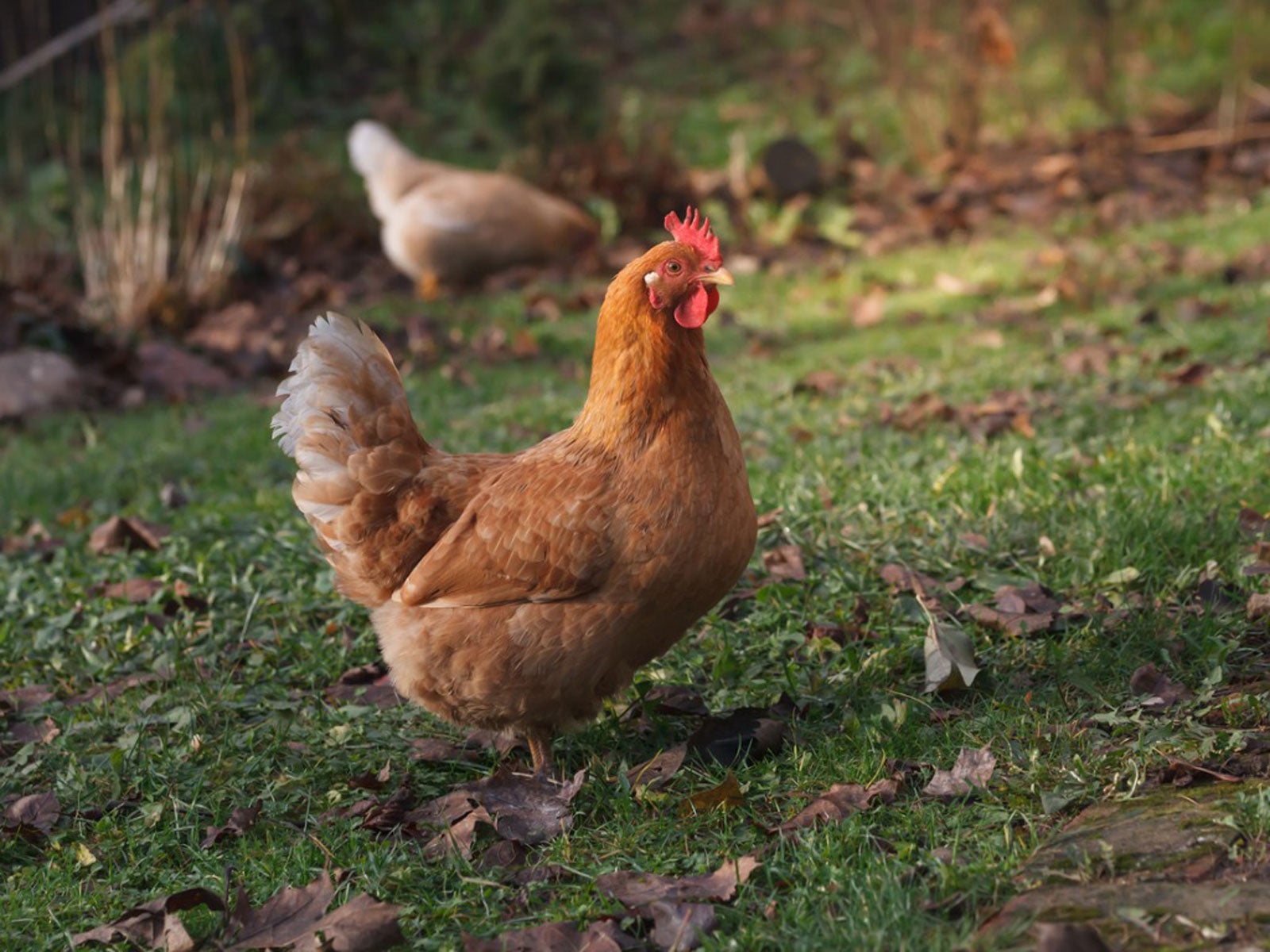Using Chicken Manure Fertilizer In Your Garden

Bonnie L. Grant

When it comes to manures, there is none more desired for the vegetable garden than chicken manure. Chicken manure for vegetable garden fertilizing is excellent, but there are some things you need to know about it in order to use it correctly. Keep reading to learn more about chicken manure compost and how to use it in the garden.
Using Chicken Manure for Vegetable Garden Fertilizer
Natural fertilizers are an excellent way to protect the environment and still deliver the nutrients plants require. Chicken manure fertilizer is one of the bigger byproducts of raising hens. The average hen produces 1 cubic foot (0.03 cubic meters) of manure every 6 months. Even if you don't keep chickens yourself, manure may be purchased at a reasonable cost from someone who does.
While it is possible for chicken manure to contain pathogens, in most cases it is an effective way to fertilize plants.
Is Chicken Poop Good Fertilizer?
Composted chicken manure delivers loads of nutrients and minerals to plants. But as with everything, it should be used in the manner least likely to cause any problems.
Poultry manure contains slow release macro and micronutrients, as well as high amounts of calcium, zinc, sulfur, and magnesium. Using chicken manure compost returns organic matter back to the land and prevents waste.
Chicken manure fertilizer is very high in nitrogen and also contains a good amount of potassium and phosphorus. The high nitrogen and balanced nutrients are the reason that chicken manure compost is the best kind of manure to use.
But the high nitrogen in the chicken manure is dangerous to plants if the manure has not been properly composted. Fresh manure can burn, and even kill plants. Composting chicken manure mellows the nitrogen and makes the manure suitable for the garden.
Sign up for the Gardening Know How newsletter today and receive a free copy of our e-book "How to Grow Delicious Tomatoes".
Un-composted poultry litter should be worked into the soil where the ammonium released is quickly converted to NO3-N, an important plant nutrient. Potassium and phosphorus levels vary but are estimated to be 80 percent of that available in a commercial fertilizer.
Other Benefits of Chicken Manure Fertilizer
Outside of the nutritional benefits, chicken manure is a great soil amendment. It can improve soil structure, thereby enhancing water retention. It also increases the soil’s ability to hold nutrients. Chicken manure incorporated into soil will enhance aeration and drainage. The further breakdown of the product will fuel microbe activity and soil diversity. This in turn hastens the breakdown of other organic material.
Chicken fertilizer will also lighten clay soils by preventing the particles from binding together. Using fresh, un-composted litter that is less than 6 weeks old will return 40-70 percent of the nitrogen back into the soil. This is an excellent way to prepare vegetable beds several weeks prior to planting.
As a side dress, composted manure provides a gentle, slow release of necessary nutrients. In gardens where chickens are allowed to free range, their waste is a bonus for plants, provided it isn’t allowed to accumulate to excess.
Composting Chicken Manure
Gardeners who have their own flock will have a ready supply of fresh chicken manure, but it still needs to be composted before adding it to garden beds. Composting manure is similar to kitchen scraps or garden waste. The balance of 30 parts carbon to 1 part nitrogen, combined with air, water, and temperature will break down the waste.
If your chicken coop has soiled bedding made of straw or sawdust, it can be added straight to the compost, where it will much of the necessary carbon. Because the carbon content of different beddings differs, a 2:1 ratio is a safe bet when composting chicken waste.
The compost pile mixture needs to be kept moderately moist and the temperature should be maintained at the optimum of 130-150 F ( 54-66 C). Shift the interior contents to the outside and vice versa to help maintain the temperature. Keeping the pile at this temperature is sufficient to inhibit any pathogens, and will also hasten composting.
How Long Should Chicken Manure Age Before Using?
On average, the composting process for chicken manure takes about 3-4 months. The exact amount of time it takes depends on the conditions under which it is composted. If you are uncertain how well your chicken manure has been composted, it's always safer to leave it a little longer. You can wait up to 12 months to use your chicken manure compost.
Compost may be applied directly around plants, mixed into the soil, or made into a tea to foliar and root feed plants.
Chicken manure for vegetable garden fertilizing will produce excellent soil for your vegetables to grow in. You will find that your vegetables will grow bigger and healthier as a result of using chicken manure fertilizer.
Can Chicken Manure Make You Sick?
Even after the composting process, there will still be some pathogens in your chicken manure. Wear gloves when applying, and keep children and pets away.
Always leave at least 90 days between manure application and harvest of vegetables that grow above the soil, like peppers, eggplants, and trellised cucumbers and tomatoes. For vegetables that are harvested from the soil, like lettuce and carrots, leave at least 120 days.
Don't eat raw vegetables straight from the garden without washing them first. If you are prone to food-borne illnesses, refrain from eating any uncooked vegetables from a garden that's been treated with chicken manure.

Heather Rhoades founded Gardening Know How in 2007. She holds degrees from Cleveland State University and Northern Kentucky University. She is an avid gardener with a passion for community, and is a recipient of the Master Gardeners of Ohio Lifetime Achievement Award.
- Bonnie L. GrantWriter